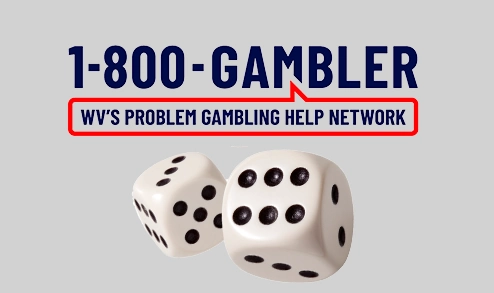 West Virginia’s Problem Gambling Help Network is taking action to address the issue of youth gambling by allocating over $40k in grant funding to community organizations. The organizations will incorporate evidence-based curricula to inform young people about the risks associated with gambling, dispel common misconceptions, and educate them about the impact of gambling advertisements. Additionally, they will teach young people how to recognize the signs of gambling addiction.
West Virginia’s Problem Gambling Help Network is taking action to address the issue of youth gambling by allocating over $40k in grant funding to community organizations. The organizations will incorporate evidence-based curricula to inform young people about the risks associated with gambling, dispel common misconceptions, and educate them about the impact of gambling advertisements. Additionally, they will teach young people how to recognize the signs of gambling addiction.
According to experts, responsible gambling educational programs could be incorporated inside and outside school walls. Parents, teachers, and mentors should also be able to recognize signs indicating problem gambling behavior and intervene if needed.
The organizations that received grants include Boys and Girls Club of the Eastern Panhandle, Reset, Inc., Pleasants County Committee on Family Issues, Community Connections, Family Resource Networks of Brooke and Hancock Counties, Clay County, Mason County, Taylor County, and Wetzel County. Students Against Destructive Decisions (SADD) groups in Putnam, Barbour, and Clay County were also awarded grants.
About 20% of Young People in West Virginia Report Having Gambled for Money, Survey Reveals
Although young people do not go to casinos, they often play the lottery, place wagers on personal challenges with friends, bet on sports, and gamble online. Moreover, many well-liked video games feature a gambling element. In West Virginia, individuals who want to wager on lottery games, bingo, or racing must be at least 18 years old. The minimum age at which West Virginians can play casino games or bet on sports is 21. But despite the age restrictions, adults often allow access to such pastimes.
A survey conducted by the National Council on Problem Gambling reveals that West Virginia is among the U.S. states with the highest rates of youth problem gambling. According to the study, at least one in every fifty West Virginians will experience gambling-related problems. Besides, young people are two to four times more susceptible to gambling problems than adults. To reduce these numbers, parents and teachers should educate youths before they become exposed to casinos and other forms of gambling activities.
According to a survey involving 600 teenagers, 85% admitted to participating in gambling activities. Of all inquired teenagers who had gambled, 20% said they participated in gambling activities to win money. That is quite disturbing considering that players must view gambling as a way of entertainment rather than a way to earn money. Of all respondents, 20% said they were worried about a friend or relative who spent a lot of time or money on gambling. Of all inquired teenagers, 4% stated that they dedicated too much time or money to gambling, while 10% said they wanted to quit gambling but did not know how to do so.